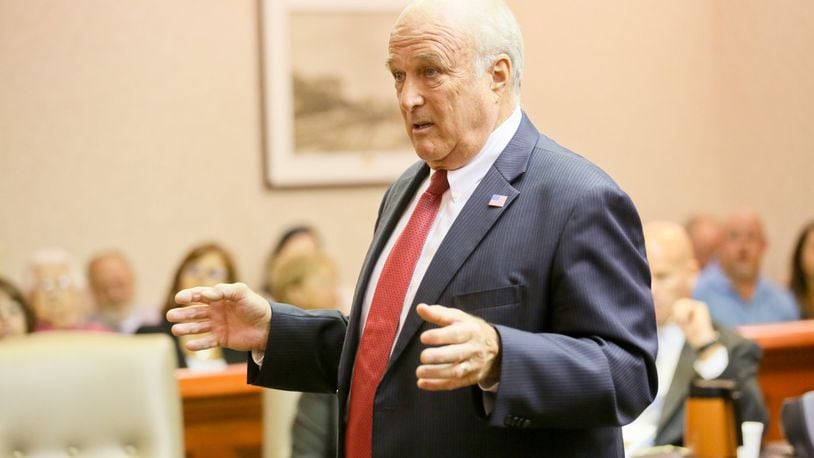City Manager Doug Elliott told City Council about the prosecutor’s letter at the May 2 meeting and then spoke again on the topic at the May 16 meeting.
“As of July 1, he said his staff would no longer prosecute (offenses charged under) our ordinances. He feels he has no obligation to prosecute them,” Elliott said. “We could cite under state code, not city ordinance but we would lose money. We get half now and it would cost about $40,000 to $50,000 per year. We’re going to need to work this out.”
Gmoser told this news outlet, through research of the current area court system his staff determined “not only do I not have the obligation, we do not have the jurisdiction to prosecute cases under city ordinances.”
He said a consolidation of the area court system would be a cost savings that he has been exploring for a couple years. Gmoser added Oxford is unique because of its collage population that may warrant a municipal or even a mayors court to hear city cases.
In his follow-up report May 16, the city manager told Council he was recommending the city cite offenses under state code where possible which would allow the county prosecutor’s staff to handle Oxford cases but the bigger issue remains of Gmoser’s plan to go to a municipal court scenario and do away with the part-time area courts.
Gmoser’s April 25 letter cited an Ohio Revised Code provision he says prohibits him from prosecuting municipal ordinance cases in area court.
“If Oxford had a municipal court, I could do so by contract. Because Oxford has no municipal court, a remedy by a contract is not available under this statute,” Gmoser wrote to Elliott, saying it would take effect in July. “If this does go into effect, violations will have to be charged under the state code where I do have jurisdiction and the requirement to prosecute and the consequential financial loss to the city.”
The letter outlines a proposal to abolish all three area courts in the county and to establish two municipal courts, one on the east side of the county and the other on the west side of Hamilton, to which Oxford cases could be sent. The city would also have the option — and expense — of establishing its own municipal court.
Elliott told Council merging into that Hamilton court would still have costs and also would require police officers to go there to testify.
Forming a court in Oxford could be an expensive proposition, too, as it likely would require a new location rather than using the Courthouse building on West High Street. Ohio Supreme Court requirements for court security likely would demand that.
Gmoser’s letter also noted the city could return to a mayor’s court as it had for many years before an agreement to have Area I Court hear city cases.
“(W)ith the move to Hamilton, you may wish to consider establishing a mayor’s court to handle all of your ordinance violations leaving the Area court to handle felony cases, domestic violence cases and second-offense OVI cases which cannot be heard in a mayor’s court. A magistrate, clerk staff and your law director acting as prosecutor will be necessary for the operation of that court, but you will have the facility you now rent to the county,” the letter said. “You may also adopt a diversion program. Presently, my diversion program for the Area I Court receives program fees in excess of $80,000 per year with very little administrative expense.”
Gmoser also noted Miami University is a “renewable resource” for that diversion program and that money would help defray the expense of a mayor’s court or municipal court and that the Ohio Supreme Court will share the cost of a part- or full-time municipal court judge, but not a mayor’s court.
Mayor Kate Rousmaniere responded to Elliott’s May 2 comments saying the city first needed to deal with the July 1 deadline for handling prosecution of cases cited under city ordinance and then face the greater question.
“There are reasons to have a municipal court,” she said. “We need to look at that.”
On May 16, the city manager said he would like to see the county’s proposal for changes to the court system and decide from there. Gmoser’s suggestion of merging the area courts was originally made two years ago, Elliott explained but came up again in the April 25 letter he received from the prosecutor.
“(The proposal for a municipal court) is based on savings to the county, but at the expense of the City of Oxford,” Elliott told Council May 16.
